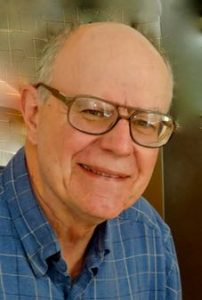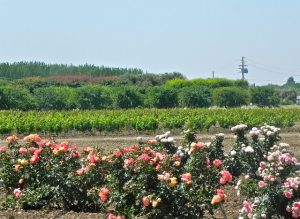
Professor Emeritus from the University of California at Davis, CHRIS THAISS writes and publishes in the discipline of writing studies. He continues to serve his professional community through local, national, and international organizations, as well as through consulting, teaching, and mentoring.
Program leadership and administration at UC Davis: In 2006, Chris became the Clark Kerr Presidential Chair and Professor in the University Writing Program (UWP) at the University of California, Davis. From 2006 to 2011, he served as first permanent director of the UWP, which had become an independent academic unit in 2004. From 2012 to 2016, he chaired the interdisciplinary PhD Designated Emphasis in Writing, Rhetoric, and Composition Studies.
From 2012 to 2015, he served as Director of the UC Davis Center for Excellence in Teaching and Learning (CETL), now renamed the Center for Educational Effectiveness. While directing the Center, he also coordinated the UC Davis First-Year Seminar Program.
Since coming to Davis, Chris also served as Chair (2008-11) of the Senate General Education Committee, charged to implement an ambitious new GE program, which he helped to design. He was also chosen to be a member of the interdisciplinary Graduate Group in Education and of the Group’s concentration in Language, Literacy, and Culture, which works with doctoral students from a number of fields and collaborates on research.
Chris also served (2009-16) as Principal Investigator of the Area 3 Writing Project, a site of the National Writing Project. Active in the development of cross-curricular writing in colleges and universities since 1978, Thaiss coordinated the International Network of WAC Programs (2005-15) and has worked with teachers in the elementary, middle, and high schools through sites of the National Writing Project.
Thaiss’s teaching at UC Davis has included undergraduate courses in writing in disciplines and professions, with particular focus on writing in STEM disciplines. Graduate courses have included
- writing studies pedagogy and theory
- research history and methods in the discipline
- and writing program administration.
Before coming to UC Davis: Until 2006, he was Professor of English at George Mason University, where, during his thirty-year career, he directed the English composition and the writing-across-the-curriculum (WAC) programs, directed the university writing center, and served as chair of the Department of English. He also served as Associate Dean of the Graduate School, and, for many years, as Associate Director of the Northern Virginia Writing Project. From 1984 to 1987, he directed Mason’s Plan for Alternative General Education (PAGE), which won the Theodore Mitau Innovation Award from the American Association of State Colleges and Universities in 1986.
During his career at Mason, he taught a wide range of courses in writing and in literature, at both undergraduate and graduate levels. Some of his courses included English composition, writing in business, writing in humanities, classical mythology, contemporary social structure, Shakespeare’s comedies, advanced nonfiction writing, and graduate seminars in composition theory and research and in the teaching of writing and literature. In 2005, he received the University’s David King Award for career contributions to teaching excellence.
Education: Thaiss came to George Mason after completing his PhD in English at Northwestern University (1975), where he also took his Master’s (1971). He completed his BA, also in English, at the University of Virginia (1970).
Books he has written or edited include A Short History of Writing Instruction: From Ancient Greece to the Modern United States (ed. with James J. Murphy; Routledge, 2020); Writing Science in the Twenty-First Century (Broadview Press, 2019); Writing Programs Worldwide: Profiles of Academic Writing in Many Places (lead editor; WAC Clearinghouse and Parlor Press, 2012); Engaged Writers and Dynamic Disciplines: Research on the Academic Writing Life (with Terry Myers Zawacki; Heinemann, 2006; WAC Clearinghouse, 2018); WAC for the New Millennium: Strategies for Continuing Writing-across-the-Curriculum Programs (ed. with Susan McLeod, Eric Miraglia, and Margot Soven; NCTE, 2001; WAC Clearinghouse, 2016); The Harcourt Brace Guide to Writing Across the Curriculum (1999); Speaking and Writing, K-12 (ed. with Charles Suhor; NCTE, 1986); Language Across the Curriculum in the Elementary Grades (NCTE, 1986; WAC Clearinghouse, 2015); two textbooks for English composition classes, Write to the Limit (Harcourt Brace, 1991) and A Sense of Value (Mayfield, 1994); and three writing texts (Pearson publishers) for specific disciplines: Writing about Theatre (with Rick Davis), Writing for Law Enforcement (with John Hess); and Writing for Psychology (with James Sanford).
He has contributed chapters to many anthologies, most recently an essay with Stephanie Wade on “Writing Science in the First Year of College” to Volume Five of Writing Spaces (2023). Other recent chapter contributions have been to Hablar, Persuadir, Aprender: Manual para la Comunicación Oral en Contextos Académicos (Speaking, Persuading, Learning: A Manual for Oral Communication in Academic Contexts)r (Universidad de Chile, 2020); Weathering the Storm: IWPs in the Age of Fiscal Austerity (Utah State University, 2019); Sustainable WAC (NCTE, 2018); Minefields of Dreams: Triumphs and Travails of Independent Writing Programs (University Press of Colorado, 2016); Keywords in Writing Studies (Utah State University Press, 2015); WAC and Second Language Writers (Parlor Press/WAC Clearinghouse, 2015); A Guide to Composition Pedagogies (2nd, ed.; Oxford, 2014); and Changing the Conversation about Higher Education (Rowman and Littlefield, 2013).
His most recent journal articles include his plenary address at the 2021 International Writing Across the Curriculum Conference (WAC Journal, 2022), an essay (with Carl Whithaus) on independent writing programs in College Composition and Communication, September 2016, and an essay (with Kara Moloney and Pearl Chaozon-Bauer) in Across the Disciplines on WAC and first-year seminars, December 2016.
His most recent publishing projects have been Writing Science in the Twenty-First Century, noted above, developed out of his years of teaching writing to STEM majors at UC Davis, and the fourth edition of A Short History of Writing Instruction (2020), co-edited with the late James J. Murphy. A second edition of Writing Science in the Twenty-First Century is now in preparation, while an historical essay on the origins and development of writing programs will be forthcoming in a collection in Spanish edited by Argentine scholars Diana Waigandt and Fabiana Castagno.
The ongoing team research project, the International WAC/WID Mapping Project, which Thaiss began in 2005, has included surveys and interviews of writing program developers in the U.S. and in countries around the world. The mapping project’s most recent iteration of its U.S. survey of WAC/WID (2015-2021) is coordinated by Michele Zugnoni of Northwestern University.
Thaiss’s book Writing Programs Worldwide: Profiles of Academic Writing in Many Places (lead editor, with Gerd Bräuer, Paula Carlino, Lisa Ganobcsik-Williams, and Aparna Sinha; Parlor Press and the WAC Clearinghouse, 2012) derived from the international portion of the mapping project research. The website writingprogramsworldwide.ucdavis.edu , coordinated by Aparna Sinha, is another facet of this research.
In addition to his writing and publishing, he serves on the editorial boards of Across the Disciplines, the WAC Clearinghouse, Writing Spaces, and Writing on the Edge, and reviews for College Composition and Communication, Written Communication, and the international Journal of Writing Research, among other publications.
Chris’s professional service beyond UC Davis also includes coordinating the International Network of Writing-Across-the-Curriculum Programs from 2005 to 2015, as well as ongoing membership (since 2011) in the Consultant-Evaluator Service of the Council of Writing Program Administrators. He is a contributing member of the Association for Writing Across the Curriculum (AWAC), for which he also serves on its Consultants Board. In 2021, he was named a Distinguished Fellow of the Association for Writing Across the Curriculum.
In addition, his teaching, writing, research, and program development have led to his being asked each year to serve as a consultant. He has been invited to many schools, colleges, and other organizations locally, nationally, and internationally in this role.
Aside from his professional activities, Chris enjoys home gardening and nature study, about which he co-writes the blog From Sacramento to Potomac: Tales of Two Valleys. His interest in growing things was also reflected in his participation from 2016 to 2022 in sensory descriptive analysis research through UC Davis’s Mondavi Institute for Wine and Food Science.
Retirement also allowed him to renew his early interest in theatre. From 2016 to 2021, he appeared in Shakespearean and modern plays performed by the Winters Theatre Company.
A third outside interest reflects his life-long love of baseball. Before the pandemic interrupted league play in 2020, he played vintage baseball–according to 1864 rules!–for the Central Valley (California) Vintage Baseball League.
